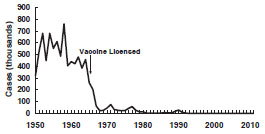Well, it’s inevitable. In physics, we have a saying that goes something like, “Yesterday’s theory is today’s discovery is tomorrow’s calibration”. In politics, it might go something like this: “Yesterday’s impossibility is today’s lightning rod is tomorrow’s bludgeon.” This morning, as I listen to the program “Forum” on KQED, they are discussing a measure in the state legislature to make the cultivation of industrial hemp legal in the state. It would still be illegal under federal law, but then so is the use of marijuana (a relative to hemp) for medical purposes and California has been licensing that for years. The U.S. imports hemp and hemp products, but farmers are not allowed to grow the plant to sell to companies who want to make everything from clothing to car interiors.
One of the guests on forum, a member of a state drug law enforcement representative agency, cited an interesting argument from a Canadian publication that may mark the first time I’ve heard global warming used by a politician to argue against something that once was just as “left wing” as global warming. He said that the article noted that the only way to dispose of the hemp stalks is to burn them, and then said that we can’t allow farmers to grow hemp because that would contribute to global warming. Wow. Let that one soak in.
Why do I care? Well, this statement flies largely in the face of basic science. How does a plant grow? Apart from taking in nutrients from the soil as a seed, it relies on the intake of carbon dioxide and the radiant energy of the sun. Green plants, as we all know, convert C02 to oxygen and retain the carbon for its own purposes. Plants are “carbon sinks”. Burning a plant, introduces energy that recombines the carbon with free O2 in the air, producing C02. It’s a cycle. While there are certainly ways other than the C02 in the air by which a plant might get ahold of carbon, most of that comes from the air. Therefore, the growth and the burning of hemp stalks is largely carbon neutral, if not almost perfectly carbon neutral.
Yet another sign that science education in this nation failed to catch and inspire a public figure. I can only feel a sense of personal failure when I hear things like this.



